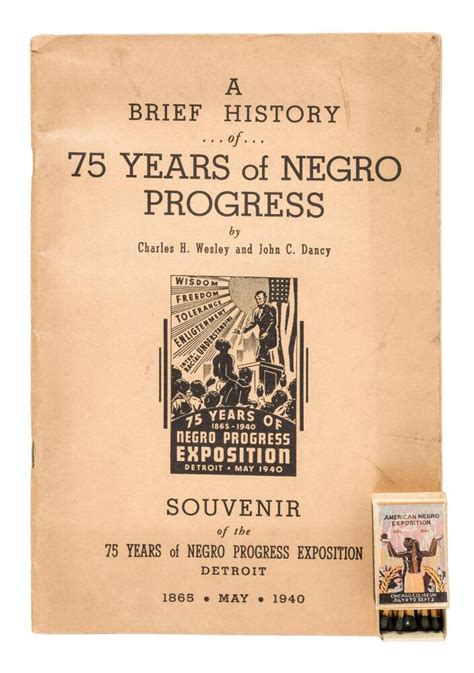Introduction

The history of the American Negro is one of resistance, struggle, and triumph. From the early days of slavery to the present era of racial equality, Negroes have fought for their rights and have made significant contributions to American society.
The Negro in Slavery
The first Negroes arrived in America in 1619, as slaves. They were forced to work on plantations and were subjected to harsh treatment. The slave trade continued for over two centuries, and by the time it was abolished in 1865, over 12 million Negroes had been brought to the United States.
Life for slaves was brutal. They were forced to work long hours in the fields, and they were often beaten and whipped. They were not allowed to own property or to learn to read or write. Families were often separated, and slaves were often sold away from their loved ones.
The Negro in the Civil War
The Civil War was a turning point in the history of the Negro. In 1863, President Abraham Lincoln issued the Emancipation Proclamation, which freed all slaves in the Confederate states. The war ended in 1865 with the defeat of the Confederacy, and slavery was finally abolished in the United States.
The Negro in Reconstruction
After the Civil War, Negroes were granted citizenship and the right to vote. However, they faced discrimination and violence from whites. The Ku Klux Klan, a white supremacist group, terrorized Negroes and prevented them from exercising their rights.
Despite the challenges, Negroes made progress during Reconstruction. They established schools and businesses, and they began to participate in politics.
The Negro in the Jim Crow Era
In the late 1800s, the Jim Crow era began. This era was characterized by legalized segregation and discrimination against Negroes. Negroes were forced to live in separate neighborhoods, attend separate schools, and use separate public facilities. They were also denied access to many jobs and opportunities.
The Negro in the Civil Rights Movement
The Civil Rights Movement of the 1950s and 1960s was a pivotal moment in the history of the Negro. Led by figures such as Martin Luther King, Jr., Rosa Parks, and Malcolm X, the movement fought for an end to segregation and discrimination.
The Civil Rights Movement achieved a number of important victories. In 1954, the Supreme Court ruled in Brown v. Board of Education that segregation in public schools was unconstitutional. In 1964, Congress passed the Civil Rights Act, which outlawed discrimination in public accommodations, employment, and voting.
The Negro in the Modern Era
Since the Civil Rights Movement, Negroes have made significant progress in all areas of American society. They have served in high-level government positions, including the presidency, and they have made significant contributions to business, education, and the arts.
However, Negroes still face challenges today. They are more likely to live in poverty, to be unemployed, and to be incarcerated than whites. They also face discrimination in housing, education, and employment.
The Negro’s Legacy
The history of the Negro in America is a complex and often tragic one. However, it is also a story of resistance, struggle, and triumph. Negroes have fought for their rights and have made significant contributions to American society. Their legacy is one that will continue to inspire generations to come.
Conclusion
The Negro’s journey in America has been one of great pain, sacrifice, and triumph. Yet, throughout it all, Negroes have persevered in their pursuit of equality and justice. Their struggles have resulted in some notable gains, but there is still much work to be done in ending racism and discrimination. As we continue the fight for a more just and equitable society, let us remember the sacrifices made by Negroes throughout history and be inspired by their unwavering determination.
- 1619: First Negroes arrive in America as slaves.
- 1808: Slave trade is abolished in the United States.
- 1863: President Abraham Lincoln issues the Emancipation Proclamation, freeing all slaves in the Confederate states.
- 1865: Civil War ends with the defeat of the Confederacy and the abolition of slavery in the United States.
- 1868: Negroes are granted citizenship and the right to vote.
- 1870s-1960s: Jim Crow era, characterized by legalized segregation and discrimination against Negroes.
- 1954: Supreme Court rules in Brown v. Board of Education that segregation in public schools is unconstitutional.
- 1964: Congress passes the Civil Rights Act, which outlaws discrimination in public accommodations, employment, and voting.
- 1968: Martin Luther King, Jr., is assassinated.
- 2008: Barack Obama is elected the first African American president of the United States.
- Frederick Douglass: A former slave who became a leading abolitionist and author.
- Harriet Tubman: A former slave who helped over 300 slaves escape to freedom through the Underground Railroad.
- Martin Luther King, Jr.: A civil rights leader who fought for an end to segregation and discrimination.
- Rosa Parks: A civil rights activist who refused to give up her seat on a bus to a white man, sparking the Montgomery bus boycott.
- Malcolm X: A civil rights activist who advocated for black nationalism and self-reliance.
- W.E.B. Du Bois: A sociologist and historian who wrote about the experiences of Negro Americans.
- Booker T. Washington: A civil rights leader who founded the Tuskegee Institute, a school for Negro Americans.
- Shirley Chisholm: A politician who was the first black woman elected to Congress.
- Barack Obama: The first African American president of the United States.
- The National Museum of African American History and Culture: https://nmaahc.si.edu/
- The African American Civil War Museum: https://www.afroamcivilwar.org/
- The Martin Luther King, Jr. Center for Nonviolent Social Change: https://www.thekingcenter.org/
